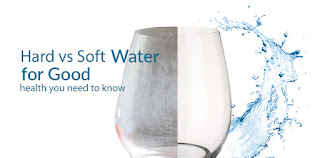In contrast to 'soft water', hard water is water that has a high mineral content, with minerals such as iron, copper calcium and magnesium. Hard water is formed when water percolates through deposits of limestone and chalk which are largely made up of calcium and magnesium carbonates.
The World Health Organization (WHO) actually says that "there does not appear to be any convincing evidence that water hardness causes adverse health effects in humans"[1]. In fact, studies indicate that hard water actually serves as a dietary supplement for copper, calcium and magnesium[2][3]. Hard water consumption even seems to be protective against Cardiovascular Diseases (CVD)[4].
So, hard water is essentially healthy, but this all changes dramatically it is used during haemodialysis, the process of purifying the blood of a patient whose kidneys are not working normally. During this process, water is used to remove waste products, such as creatinine and urea, and free water from the blood.
If the water, used to flush the blood, contains high levels of iron, calcium and magnesium it can result in post-dialysis nausea, vomiting, weakness (asthenia), and/or hypertension[5]. This is the Hard Water Syndrome.
[1] Hardness in Drinking-water Background document for development of WHO Guidelines for Drinking-water Quality – 2003. See here.
[2] Klevay: The influence of copper and zinc on the occurrence of ischemic heart disease in Journal of Environmental Pathology and Toxicology – 1980
[3] Sengupta: Potential health impacts of hard water in International Journal of Preventative Medicine – 2013
[4] Gianfredi et al: Cardiovascular diseases and hard drinking waters: implications from a systematic review with meta-analysis of case-control studies in Journal of Water and Health – 2017
[5] Freeman, Lawton: The Hard Water Syndrome in New England Journal of Medicine – 1967

Geen opmerkingen:
Een reactie posten